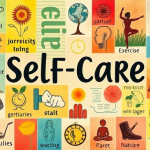
Winter Wellness: Self-Care Tips to Stay Happy and Healthy During Cold Months
Importance of Self-Care During Winter Months
During the winter months, it becomes essential to prioritize self-care to maintain overall well-being. The cold weather, lack of sunlight, and potential seasonal blues can take a toll on both physical and mental health. Engaging in self-care practices can help combat the effects of winter and promote a sense of balance and wellness in daily life.
Self-care during winter can involve various activities such as staying active, getting adequate rest, eating nourishing foods, and taking time for relaxation. It’s crucial to listen to your body’s needs and address them with care and compassion. By incorporating self-care into your routine, you can better cope with the challenges of the season and nurture a positive relationship with yourself.
Prioritize Sleep for Overall Well-being
Getting an adequate amount of quality sleep is crucial for overall well-being. Sleep plays a vital role in our physical health, mental clarity, emotional balance, and immune function. Not only does it allow our bodies to rest and repair, but it also helps in consolidating memories and improving learning capacity.
Prioritizing sleep involves establishing a consistent sleep schedule, creating a calming bedtime routine, and optimizing your sleeping environment. Avoiding stimulants like caffeine and electronic devices before bedtime can also contribute to better sleep quality. Remember, a good night’s sleep is essential for rejuvenating the mind and body, so make sure to prioritize your sleep for optimal health and well-being.
Stay Hydrated to Combat Dry Air
In the winter months, the air tends to be drier both outdoors and indoors due to heating systems running at full blast. This dryness can have a negative impact on our skin, respiratory system, and overall well-being. One way to combat the effects of dry air is to stay hydrated by drinking an adequate amount of water throughout the day. Keeping yourself hydrated helps to moisturize your skin from the inside out and ensures that your body functions optimally despite the harsh environmental conditions.
Dehydration can exacerbate the dryness in the air, leading to issues such as dry skin, chapped lips, and irritated sinuses. By maintaining proper hydration levels, you can help your body cope with the challenges posed by the winter season. In addition to drinking water, you can also incorporate hydrating foods such as fruits, vegetables, and herbal teas into your diet to further support your body’s hydration needs. Remember that staying hydrated is not only essential for combating the dry air but is also a fundamental aspect of maintaining your overall health and well-being during the winter months.
Incorporate Nutrient-Rich Foods into Your Diet
Incorporating nutrient-rich foods into your diet is crucial, especially during the winter months when our bodies need an extra boost of vitamins and minerals to stay healthy. Focus on consuming a variety of colorful fruits and vegetables, whole grains, lean proteins, and healthy fats to ensure you are getting a well-rounded mix of nutrients. Instead of processed foods high in sugars and additives, opt for whole, natural foods that will provide your body with the fuel it needs to thrive.
By including nutrient-dense foods in your meals, you can help support your immune system, improve your energy levels, and maintain a healthy weight. Foods rich in antioxidants, such as berries, leafy greens, and nuts, can help protect your cells from damage and reduce inflammation in the body. Incorporating sources of omega-3 fatty acids, like salmon and chia seeds, can also support brain health and reduce the risk of chronic diseases. Remember, a balanced diet full of wholesome, nutrient-rich foods is key to overall well-being and vitality.
Keep Moving with Indoor Exercises
Staying active during the winter months is crucial for maintaining physical and mental well-being. With colder temperatures and shorter days, it can be tempting to hunker down and remain sedentary. However, incorporating indoor exercises into your daily routine can help boost your energy levels, improve mood, and combat feelings of lethargy that often accompany the winter season. Whether you prefer yoga, pilates, bodyweight exercises, or following online workout videos, finding a form of indoor exercise that you enjoy can make a significant difference in how you feel.
Regular physical activity not only keeps your body in good shape but also releases endorphins that can uplift your spirits and reduce stress. Setting aside time each day for indoor exercises not only benefits your physical health but also provides a much-needed break from the monotony of winter days spent indoors. Additionally, engaging in movement can help enhance your focus, concentration, and overall productivity, making it a valuable addition to your winter self-care routine.
Practice Mindfulness and Meditation
Incorporating mindfulness and meditation into your daily routine can provide a sense of calm and mental clarity, especially during the winter months when stress levels can be higher. By taking a few moments each day to focus on the present moment and quieting the mind, you can reduce anxiety and improve overall well-being. Mindfulness encourages you to observe your thoughts and feelings without judgment, helping you to develop a greater sense of self-awareness and control over your emotions.
Meditation, on the other hand, allows you to cultivate a sense of inner peace and relaxation through focused breathing exercises or guided imagery. It can be a powerful tool in combatting negative thought patterns and promoting a positive outlook on life. Finding a quiet space to practice mindfulness and meditation can be a rejuvenating experience, offering a much-needed break from the hustle and bustle of daily life.
Establish a Routine for Structure
Establishing a routine can provide a sense of stability and organization, especially during the winter months when the days are shorter and colder. Setting a consistent schedule for activities like waking up, meals, work, exercise, and relaxation can help create a sense of predictability and control in our daily lives. This structure can also aid in managing time effectively and ensuring that important tasks are completed without feeling overwhelmed.
Moreover, having a routine can improve our overall well-being by promoting good habits and reducing stress. When we follow a set schedule, our bodies and minds can adjust and function more efficiently. It also allows us to allocate time for self-care activities, hobbies, and social interactions, which are essential for maintaining a healthy balance in life. By establishing a routine, we create a framework that supports our physical, mental, and emotional health throughout the winter season.
Connect with Loved Ones for Emotional Support
During the winter months, when the days are shorter and the weather colder, it’s crucial to stay connected with loved ones for emotional support. Social interaction plays a significant role in boosting mood and combating feelings of isolation that can often accompany the winter season. Engaging in meaningful conversations, sharing experiences, and expressing emotions with family and friends can provide a sense of comfort and reassurance during challenging times.
Whether it’s a simple phone call, a video chat, or spending quality time together, nurturing relationships with loved ones can provide a sense of belonging and emotional stability. Knowing that you have a support system to lean on can help alleviate stress and anxiety, fostering a sense of connection and well-being. So, make an effort to reach out to those you care about, share your thoughts and feelings, and cultivate relationships that can offer you the emotional support you need to navigate the winter months with resilience and positivity.
Embrace Natural Light for Mood Enhancement
During the winter months, when daylight hours are shorter, it’s important to embrace natural light to uplift your mood and energy levels. Exposure to sunlight triggers the brain to release serotonin, a neurotransmitter that helps regulate mood, promoting feelings of happiness and well-being. Make an effort to spend time outdoors during daylight hours, whether it’s going for a walk, sitting by a window, or simply stepping outside for a few minutes to soak up some sunlight.
Natural light is not only beneficial for your mood but also plays a crucial role in regulating your circadian rhythm, the body’s internal clock that governs sleep-wake cycles. The exposure to natural light during the day helps signal to your body that it’s time to be awake and alert, which can improve your overall sleep quality. To maximize the benefits of natural light, try to get outside in the morning or early afternoon when sunlight is at its strongest, and consider incorporating more natural light into your indoor spaces by opening curtains or blinds to let in as much daylight as possible.
Indulge in Warm Baths or Showers for Relaxation
In the midst of chilly winter days, there’s nothing quite like indulging in a warm bath or shower to unwind and relax. The sensation of the hot water cascading down your body can melt away the tension and stress accumulated throughout the day, providing a soothing escape from the cold weather outside. This simple act of self-care not only cleanses the body but also rejuvenates the mind, offering a brief respite from the demands of daily life.
As the warm water envelops you, take a moment to truly be present in the experience. Allow your senses to fully appreciate the comforting sensation, inhaling deeply and exhaling slowly to release any lingering worries or anxieties. Consider adding some essential oils or bath salts to elevate the experience further, enhancing relaxation and promoting a sense of calm. Let this time be a ritual of self-care, a moment dedicated solely to your well-being and restoration.
Stay Warm with Layered Clothing
Layered clothing is key to staying warm and comfortable during the chilly winter months. By wearing multiple thin layers, you create insulation that traps heat close to your body, keeping you warmer than a single thick garment would. Start with a moisture-wicking base layer to keep sweat away from your skin, add a thermal layer for warmth, and finish with a waterproof and windproof outer layer to shield you from the elements. Don’t forget to accessorize with hats, gloves, scarves, and wool socks to protect extremities and prevent heat loss from uncovered areas.
When choosing layered clothing, opt for fabrics like wool, polyester blends, and fleece that provide effective insulation while still allowing for breathability. Avoid cotton as it retains moisture and can leave you feeling damp and chilled. Experiment with different combinations of layers to find what works best for your comfort level and activity level. Remember, the key to staying warm is not just the bulk of clothing but the strategic placement and quality of the layers you wear. So, dress smartly this winter and enjoy the season comfortably and stylishly.
Combat Seasonal Affective Disorder (SAD)
Seasonal Affective Disorder (SAD) is a type of depression that occurs seasonally, often in the winter months when there is less natural sunlight. Individuals with SAD may experience symptoms such as low energy, moodiness, and a lack of interest in activities they once enjoyed. To combat SAD, it is essential to prioritize self-care and implement strategies to improve mood and wellbeing during this challenging time.
One effective way to combat SAD is by increasing exposure to natural light. This can be achieved by spending time outdoors during daylight hours, opening curtains to let sunlight in, or using light therapy lamps specifically designed to mimic natural sunlight. Additionally, maintaining a consistent sleep schedule, engaging in regular physical activity, and practicing relaxation techniques can all contribute to managing symptoms of SAD and promoting overall mental health.
Boost Your Immune System with Vitamin Supplements
Vitamin supplements can play a crucial role in supporting a healthy immune system, especially during the winter months when illnesses are more prevalent. Key vitamins like Vitamin C, Vitamin D, and Zinc are known to boost immunity and reduce the risk of infections. These supplements can help fill in any nutritional gaps in your diet and provide extra support for your body’s defense mechanisms.
It’s important to note that while vitamin supplements can be beneficial, they should not replace a balanced diet rich in fruits, vegetables, whole grains, and lean proteins. Supplements are meant to complement a healthy lifestyle and should be taken in moderation according to recommended dosages. Consulting with a healthcare professional before starting any new supplement regimen is advisable to ensure compatibility with your individual health needs. By incorporating vitamin supplements as part of a well-rounded approach to immune health, you can better equip your body to ward off illnesses and stay resilient during the winter season.
• Vitamin supplements like Vitamin C, Vitamin D, and Zinc can boost immunity
• Supplements help fill nutritional gaps in the diet
• They provide extra support for the body’s defense mechanisms
• Supplements should complement a healthy lifestyle, not replace it
• Moderation is key when taking vitamin supplements
• Consulting with a healthcare professional before starting new supplements is advisable
Limit Caffeine and Alcohol Consumption
Moderation is key when it comes to consuming caffeine and alcohol during the winter months. While a hot cup of coffee or tea can provide comfort on a chilly day, excessive caffeine intake can disrupt your sleep patterns and lead to increased feelings of anxiety. Similarly, although a glass of wine might seem cozy by the fireplace, overindulging in alcohol can have negative effects on your physical and mental well-being.
Being mindful of your caffeine and alcohol consumption is essential for maintaining a healthy balance in your daily routine. Opting for herbal teas or decaffeinated options can still offer warmth without the stimulating effects of caffeine, promoting better sleep quality and overall relaxation. Likewise, limiting alcoholic beverages to special occasions or enjoying them in moderation can help you stay more present and in control of your emotions during the winter season.
Set Realistic Goals for Achievable Progress
Setting realistic goals is crucial for making progress in any aspect of life. When we set achievable objectives, we are more likely to stay motivated and focused on our path. It’s essential to break down bigger goals into smaller, manageable tasks that we can work on daily or weekly. This way, we can track our progress and celebrate each step taken towards our ultimate goal.
By setting realistic goals, we create a sense of direction and purpose in our lives. Whether it’s related to personal development, career advancement, or health and well-being, having clear objectives helps us stay organized and committed to our aspirations. Remember to be gentle with yourself and adjust your goals as needed to ensure they remain attainable and in alignment with your current circumstances and capabilities.
Engage in Creative Activities for Mental Stimulation
Engaging in creative activities is essential for mental stimulation. Whether it’s painting, writing, or playing a musical instrument, these activities can spark inspiration and boost cognitive function. Creativity allows the mind to explore new ideas and perspectives, fostering a sense of curiosity and problem-solving skills.
Through creative expression, individuals can tap into their emotions and thoughts, leading to self-discovery and personal growth. It provides a healthy outlet for stress relief and helps in maintaining a positive mindset. So, take some time each day to engage in a creative endeavor that brings you joy and challenges your imagination—it’s a valuable tool for enhancing mental well-being.
Get Fresh Air Daily for a Mood Lift
As the winter months can often confine us indoors, it’s crucial to make a conscious effort to step outside and get some fresh air daily. A short walk in nature or even a few moments spent in your backyard can do wonders for your mood and overall well-being. The crisp air and change of scenery can help clear your mind and lift your spirits, providing a much-needed break from the indoor routine.
Fresh air has the power to invigorate our senses and boost our energy levels. Whether it’s a brisk morning stroll or a leisurely evening wander, incorporating outdoor time into your daily routine can have a positive impact on your mental health. So, take a moment to step outside, breathe in the fresh air, and let nature work its magic on your mood.
Practice Gratitude to Foster Positivity
Gratitude is a powerful tool that can significantly impact our overall well-being. By taking the time to recognize and appreciate the positives in our lives, we can shift our focus away from negativity and cultivate a more optimistic mindset. Practicing gratitude daily, whether through journaling, verbal expressions, or quiet reflection, can help us find joy in even the smallest of moments.
Fostering positivity through gratitude not only improves our mental health but also enhances our relationships with others. When we express thanks and acknowledge the kindness and support we receive, we deepen our connections with loved ones and create a more harmonious environment. By incorporating a habit of gratitude into our daily routine, we can experience greater happiness and resilience in the face of life’s challenges.
Seek Professional Help if Needed
If you find that your mental health is significantly impacting your daily life and you are struggling to cope with the challenges winter brings, seeking professional help may be beneficial. A licensed therapist or counselor can provide you with the necessary support and guidance to navigate through difficult emotions and develop effective coping strategies. Remember, reaching out for help is a sign of strength, and mental health professionals are trained to assist you in managing your well-being.
Therapy sessions can offer a safe space for you to express your feelings, explore underlying issues, and work towards achieving a more balanced mental state. Whether you are dealing with seasonal affective disorder (SAD), anxiety, depression, or simply feeling overwhelmed, a mental health professional can offer personalized treatment to help you regain a sense of control and improve your overall quality of life.
Celebrate Small Victories and Practice Self-Com
In the journey of self-care during the winter months, celebrating small victories becomes crucial. Each accomplishment, no matter how minor, contributes to building a positive momentum that can uplift spirits and bolster resilience. Whether it’s completing a task, sticking to a wellness routine, or simply making time for self-care amidst busy schedules, acknowledging these triumphs can cultivate a sense of achievement and motivation.
Moreover, the practice of self-compassion goes hand in hand with celebrating small victories. Being kind to oneself, especially during challenging times, is essential for maintaining emotional well-being. By showing understanding and forgiveness towards one’s own shortcomings, individuals can nurture a sense of self-worth and inner peace. Embracing self-compassion fosters a supportive internal dialogue that encourages growth and self-improvement.











